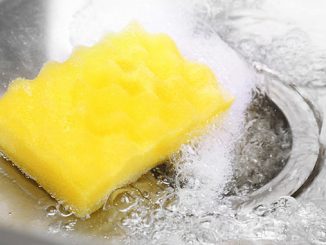
Why You Need to Say Goodbye to the Kitchen Sponge
Any method and tool for cleaning in your home is good, as long as you’re cleaning, right? Wrong. While staying on top of household chores is good for body, soul, and home, there are some things that can just do more harm than good. And the ordinary kitchen sponge is one of them. Read on to learn why you should be saying ‘see ya’ to the sponge.
Germs, Germs, and More Germs
If you thought that your bathroom would be the room in your home with the most bacteria, then you’d be wrong. Yes, it does have a lot of germs, but your kitchen has even more than you might think.
In 2017, researchers from Germany carried out germ analysis on ordinary kitchen sponges. To look at them, they appeared as any regular sponges, but little did the researchers know that they would be hotbeds for bacteria.
In one sponge, those researchers identified over 350 types of bacteria, with as many as 45 billion in every square centimetre. If that doesn’t sound like a lot, then think about the average size of a kitchen sponge. Nearly five and a half trillion tiny bugs are calling your cleaning tool home.
Fortunately, none of the bacteria on the sponges in the study were harmful, but there were infection-causing pathogens, which could pose a risk to human health.
What Should I Use Instead?
If you’ve realised the error of your ways, and you want to invite a new type of cleaning tool into your home, then you can’t go wrong with a plastic brush. They lack crevices for bacteria to get stuck, and they dry out far quicker than a kitchen cloth or sponge. What’s more, they are often safe to clean in the dishwasher, which can remove bacteria that could be lurking between the bristles.
